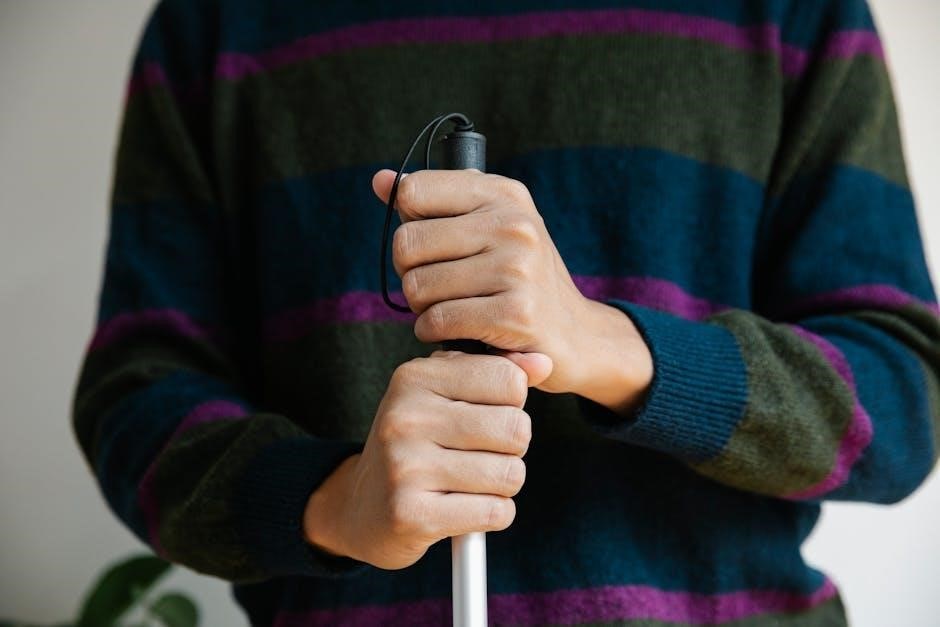Internalized homophobia refers to the process by which individuals who identify as LGBTQ absorb and internalize negative societal attitudes and beliefs about their sexual orientation or gender identity. This can lead to a range of negative emotions and experiences‚ including shame‚ self-hatred‚ and low self-esteem. The definition of internalized homophobia is complex and multifaceted‚ and it can manifest in different ways for different people. According to various sources‚ internalized homophobia involves the internalization of negative societal views and stereotypes about homosexuality‚ leading to a negative self-image and a lack of self-acceptance. It is a common experience for many LGBTQ individuals‚ and it can have a significant impact on their mental health and well-being. Understanding the definition and explanation of internalized homophobia is essential for developing effective strategies for overcoming it and promoting positive change. It requires a comprehensive approach that takes into account the social‚ cultural‚ and psychological factors that contribute to its development.

Recognizing Internalized Homophobia
Identifying internalized homophobia involves acknowledging negative self-perceptions and emotional struggles‚ with feelings of shame and self-hatred‚ impacting mental health and overall well-being greatly always in LGBTQ individuals somehow naturally.
Signs and Symptoms
Identifying the signs and symptoms of internalized homophobia is crucial for individuals to acknowledge and address their emotional struggles. Common signs include negative self-talk‚ self-blame‚ and feelings of shame and guilt. Individuals may also experience anxiety‚ depression‚ and low self-esteem‚ which can impact their mental health and overall well-being. They may struggle with self-acceptance‚ feeling like they need to hide their true identity or apologize for who they are. These feelings can be deeply ingrained‚ making it challenging for individuals to recognize and overcome them. By understanding the signs and symptoms‚ individuals can begin to break free from the negative self-perceptions and emotional struggles that internalized homophobia can cause. This awareness is the first step towards healing and recovery‚ allowing individuals to develop a more positive and compassionate relationship with themselves. With self-awareness and support‚ individuals can work towards overcoming internalized homophobia.

Impact on Mental Health
Internalized homophobia affects mental health‚ causing anxiety‚ depression‚ and low self-esteem‚ impacting overall well-being and relationships greatly always with negative emotions and thoughts surrounding identity issues daily
Effects on Self-Esteem and Well-being
Internalized homophobia can have a profound impact on an individual’s self-esteem and overall well-being‚ leading to feelings of inadequacy and low self-worth. This can manifest in a lack of confidence‚ self-doubt‚ and a negative self-image. The internalization of negative societal attitudes towards LGBTQ individuals can lead to a sense of shame and self-hatred‚ which can be incredibly damaging to one’s mental health. Furthermore‚ the effects of internalized homophobia can be far-reaching‚ influencing relationships‚ career choices‚ and overall life satisfaction. It is essential to recognize the effects of internalized homophobia on self-esteem and well-being‚ as this can be a crucial step in the process of healing and recovery. By acknowledging and addressing these issues‚ individuals can begin to work towards a more positive and affirming sense of self‚ leading to improved mental health and well-being. This can be a complex and challenging process‚ but it is ultimately a necessary one.

Understanding the Causes
Societal factors and discrimination contribute to internalized homophobia‚ influencing LGBTQ individuals’ perceptions of themselves and their place in society always and affecting their mental health greatly every day normally.
Societal Factors and Discrimination
Societal factors and discrimination play a significant role in the development of internalized homophobia‚ with negative attitudes and stereotypes perpetuated by media‚ family‚ and community contributing to the issue.
Discriminatory laws and policies can also exacerbate the problem‚ making it difficult for LGBTQ individuals to feel accepted and valued.
Furthermore‚ societal expectations of heteronormativity can lead to feelings of shame and self-doubt‚ as individuals may feel pressured to conform to traditional gender and sexual norms.
Additionally‚ a lack of representation and visibility of LGBTQ individuals in mainstream culture can contribute to internalized homophobia‚ making it harder for individuals to see themselves reflected positively in society.
Overall‚ addressing societal factors and discrimination is crucial to overcoming internalized homophobia and promoting a more inclusive and accepting environment for all individuals‚ regardless of their sexual orientation or gender identity.

Overcoming Internalized Homophobia
Overcoming internalized homophobia involves self-reflection‚ support‚ and empowerment‚ allowing individuals to reclaim their identity and live authentically‚ free from shame and self-hatred‚ with positive outcomes always expected slowly.
A Guide to Healing and Recovery
Healing and recovery from internalized homophobia require a comprehensive approach‚ involving self-reflection‚ education‚ and support. Individuals can start by acknowledging and accepting their feelings‚ rather than suppressing or denying them. Seeking help from mental health professionals‚ support groups‚ or online resources can provide a safe and non-judgmental space to explore and address internalized homophobia. Practicing self-compassion‚ self-care‚ and self-forgiveness is also essential in the healing process. Additionally‚ connecting with others who have experienced similar struggles can help individuals feel less isolated and more empowered. By working through their internalized homophobia‚ individuals can develop a more positive and authentic sense of self‚ leading to improved mental health‚ relationships‚ and overall well-being. With patience‚ effort‚ and the right support‚ it is possible to overcome internalized homophobia and live a more fulfilling and meaningful life. This journey towards healing and recovery is unique to each individual and requires a commitment to growth and self-awareness.
